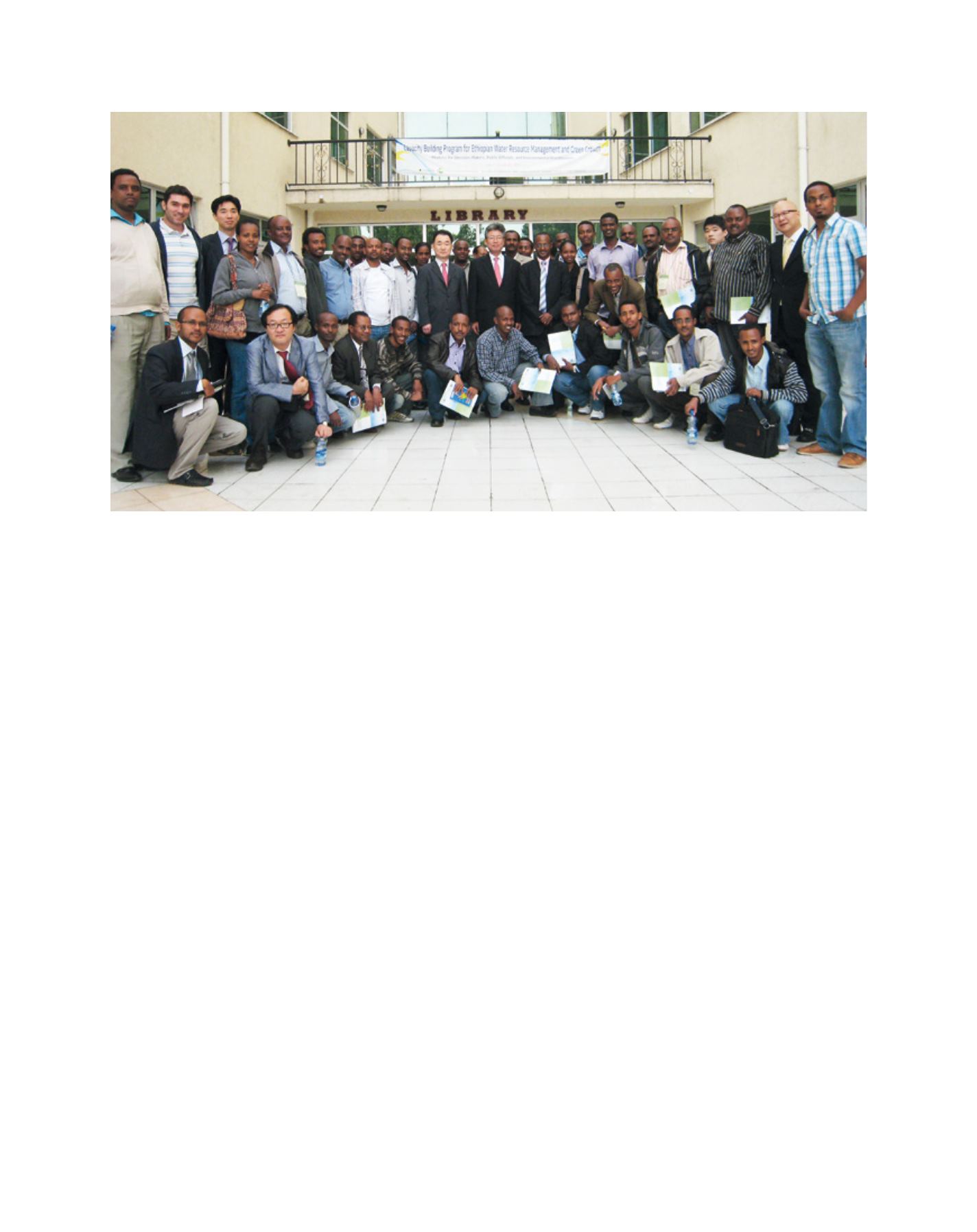

[
] 298
I
nternational
C
ooperation
on
W
ater
S
ciences
and
R
esearch
tion about the target area, test logistics and address
deficiencies in design and procedure before the appli-
cation of membrane distillation technology. GSC
intends to collaborate with its partner institutions in
the developing countries, specifically those in north
Asia and south-east Asia such as Mongolia, Vietnam
and Cambodia, to create a cooperative network for local
environmental and socioeconomic assessment.
In the next phase of the project, the research team
will aim for two major objectives:
• to expand the distribution of the prototype on
a larger scale to other regions of the developing
countries
• to develop a strategic ODA implementation model
which incorporates a systematic procedure to improve
Korea’s ODA performance and contribute to the needs
of the developing countries.
Moving forward
GSC plans to carry out relevant water research which
will form the basis for global partnership and an
international research network. Creating sustainable
approaches for water-related issues and contributing
towards implementing internationally agreed agendas
for water in the developing countries requires research
and outreach activities in diverse forms. GSC aims to
enhance international cooperation on water-related
issues to provide viable, forward-looking solutions
for sustainable water resources. Furthermore, GSC
remains firmly committed to supporting developing
countries by providing tailored solutions for water
resource sustainability and enhancing capacity for
water management.
Decision makers, researchers and water practitioners from across Ethiopia attended the capacity building programme at Addis Ababa in 2011
Image: KEI
Technology for safe drinking water
In the context of the Rio+20 agenda, the rights to water and sanita-
tion were explicitly recognized by the United Nations. Improving
access to water and sanitation in the developing countries is
considered to be one of the key issues for sustainable development.
However, despite various forms of aid and assistance from numerous
organizations worldwide, there is room for improvement in achiev-
ing the Millennium Development Goal of halving the number of
people without access to safe drinking water.
Among GSC’s efforts to contribute to sustainable development
and water security in the developing countries, a new project was
initiated jointly with the Korea Institute of Science and Technology
(KIST) in 2012.
6
This ongoing project involves technical coopera-
tion for the development of appropriate technology to provide safe
drinking water in the rural areas of the developing countries. With
the growing recognition of Official Development Assistance (ODA)
in Korea and the need to play a greater role (both in quantity and
quality) to support the developing countries, GSC and KIST have
developed this pilot project with the objective to propose a new
strategic ODA implementation model for the Korean Government.
One of the critical factors for the pilot project lies in the devel-
opment of appropriate equipment based on membrane distillation
technology for purifying the contaminated water. The prototype,
which allows the elimination of heavy metals such as arsenic for
safe drinking water, is being developed in collaboration with the
Center for Water Resource Cycle at KIST. Furthermore, considering
the nature of appropriate technology for the developing countries,
the prototype aims for low-cost, quasi-permanent and self-energy-
sustaining solutions.
In addition to the development of appropriate technology, the
GSC research team is working to identify the pilot project area
which can best fit the functioning environment of the prototype.
The research will provide a pre-feasibility study to gather informa-


















